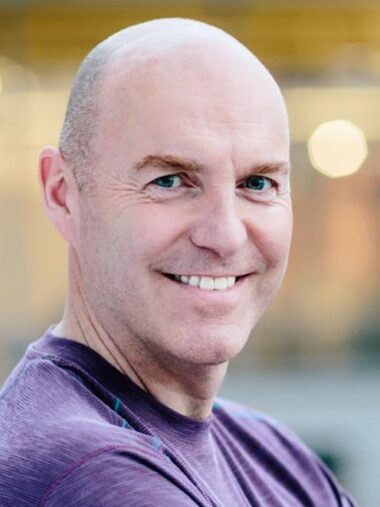
Daron Green
- Industry Partner
- BS Chemical Physics ’89, The University of Sheffield; PhD Chemistry ’92, The University of Sheffield
- Supporter of the Align program
When Daron Green managed operations and academic relations for Facebook Research in 2018, he saw an issue in its hiring pool: a nominal proportion of women and groups historically underrepresented in tech, especially those with advanced degrees in computer science. So, when Carla Brodley, dean of the Khoury College of Computer Sciences at the time, introduced Green to Northeastern’s Align master’s in computer science —which accepted students from any undergraduate degree — Green saw tremendous potential for systemic change.
“Facebook’s intent was to try and move the needle at a national level by investing in a program that demonstrably provided an on-ramp for a more diverse pool into computer science,” Green says.
So, to support the program in building on its initial efforts, Facebook made a $4.16 million, four-year investment. The grant provided funding for scholarships — which Khoury College managed independently without any ties to an internal Facebook talent pipeline — and grew Northeastern’s marketing and recruitment efforts. Additionally, the funding supported the development of the MS Pathways to Computing Consortium, a networked learning community of colleges and universities across North America that are investing in their own “Align-like” programs on their campuses.
Green and his team were experts in the computer science industry, but they trusted Khoury College to define the curriculum students needed to bridge their undergraduate studies to computer science. It was a working relationship that relied on expertise and guidance on both sides. Mary Trimarco, director of strategic partnerships for the Align Program, says that working with Green meant “having a true partner who helps you improve your program and understands where you’re going, and isn’t just looking for those benchmarks.”
Green feels that Khoury College is a thought leader in preparing students for the industry. The potential of the program was evident in the feedback he heard from students, and in the way it reflected his own transition from his initial field of study in physical chemistry and simulation to computer science.
I think that every single computer science department should have an Align-equivalent program. They should all be able to onboard non-computer science graduates into a master’s program. The value to the university, to the student, and to the industry is clear
“Actually meeting the students was probably the most influential thing,” Green says. “The commentary that I heard from the students was, ‘I really enjoyed my first degree. My passion for that topic is now satisfied. I want to get a job and have a skill set that’s marketable. And this is the magic.’ I know exactly what that feels like. This is exactly what I went through.”
Although the intent of the funding was to support the broader industry, not to expand Facebook’s field of applicants, hiring data has shown that Align graduates have done quite well in their independent pursuit of jobs at Facebook (now Meta) upon graduation.
After Green left Facebook in 2021, he was hired to do an analysis of Northeastern’s corporate engagement strategy, including a series of recommendations to enhance the university’s ability to effectively engage industry at scale. In July 2021, Green became the chief scientist for Autodesk. Although Meta’s four-year partnership with Align concluded in 2022, the program and the Pathways to Computing Consortium have continued to grow thanks to the tremendous boost provided by this early funding. And Green believes that this is only the beginning.
“I think that every single computer science department should have an Align-equivalent program,” Green says. “They should all be able to onboard non-computer science graduates into a master’s program. The value to the university, to the student, and to the industry is clear.”